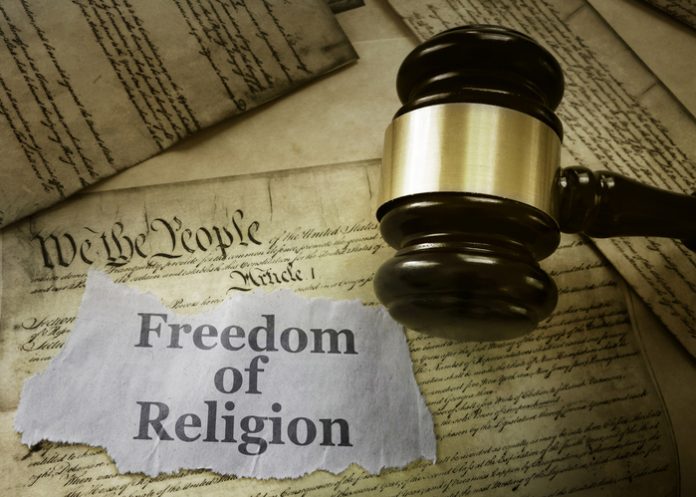I’ve been writing about Denver-area baker Jack Phillips for over a decade now. It’s clear to me he’s going to be badgered into the grave by authoritarians intent on punishing him for thought crimes. From the first time his name appeared in the news until this day, the media have misled the public about him, about the case and about the law.
The latest chapter in Phillips’ Kafkaesque saga involves a transgender lawyer named Autumn Scardina, who demanded Phillips create a pink cake with blue frosting to help celebrate a gender transition. As expected, Phillips, who’d already spent years fighting government coercion, refused to participate.
The Colorado Civil Rights Commission agreed that Scardina had been discriminated against as a transgender person. Then, the dishonorable A. Bruce Jones of the 2nd Judicial District upheld the commission’s flagrant attack on free expression. Now, the Colorado Supreme Court has agreed to take up the case.
The entire case is built on ludicrous contortions of logic and law. The Colorado Court of Appeals, for instance, ruled in favor of Scardina, contending that the colors pink and blue aren’t really speech because, in and of themselves, they aren’t expressive of anything. The message, says the court, is “generated by the observer.”
Yes. Because Phillips isn’t a complete idiot, he understands that context matters. The color white has no inherent meaning, either. If a known Klansman asks a tailor to fit him for some white sheets, it definitely does.
Then again, if you believe Scardina just happened to approach the most famous Christian baker in the country to create a “transition” cake the same day the Supreme Court announced it would hear the Masterpiece case in 2017, you’re certainly an idiot. The entire Scardina episode, including the configuration of the cake — using colors but no words — was calibrated to set Phillips up.
In the initial complaint to the Civil Rights Commission, Scardina claimed to be “stunned” by Phillip’s rejection. It should be noted, because it isn’t in any media coverage, that Phillips’ lawyers had very good reason to suspect Scardina, whose name appeared on a caller ID, first requested “an image of Satan smoking marijuana.” Later, an email was sent to the shop requesting “a three-tiered white cake” with a “large figure of Satan, licking a (nine-inch) black Dildo … that can be turned on before we unveil the cake.”
Then again, Scardina admitted it was a setup. As the Associated Press reported last year, according to the activist’s lawyer, “She called Phillips’ Masterpiece Cakeshop to place the order after hearing about the court’s announcement because she wanted to find out if he really meant it … It was more of calling someone’s bluff.”
There was no bluff to call. Phillips isn’t going to create cakes to celebrate gay weddings or gender transitions or the grand openings of strip clubs or bawdy bachelor parties or for a ‘happy divorce!’ or any other event that undermines his faith. And even if he was the biggest hypocrite in all of Christendom — which he most certainly isn’t — it wouldn’t change anything. Americans don’t have to justify their free expression to anyone.
Scardina claims the lawsuit was intended to “challenge the veracity” of Phillips’ claim that he would serve LGBTQ customers. This is the central lie of the case. Phillips never once refused to sell a gay couple or a transgender person or anyone else anything in his store. But Phillips isn’t Scardina’s servant, and the government has no right to compel him to endorse or participate in any lifestyle.
Speaking of which, the media keeps contending that Phillips is looking for a religious “carve out” in anti-discrimination law — or something along those lines. No such thing exists. It is unclear if the people who write those words are unfamiliar with the First Amendment or just instinctively dismiss it, but religious liberty and free expression are explicitly protected by law. Anything that infringes on those rights is the “carve out,” not the other way around. If “anti-discrimination” laws dictate that the government can compel Americans to express ideas they disagree with, as Colorado does, then anti-discrimination laws need to be overturned, tout de suite.
At this point, the best-case scenario is for Phillips’ case to reach SCOTUS, so the court can either repair the Masterpiece decision — which basically provided the state and activists with a guidebook on bullying people of faith (basically, don’t show public animosity while doing it) — or shelve the First Amendment.
For more great content from Rights, Justice & Culture News.
For more from The Heartland Institute.






